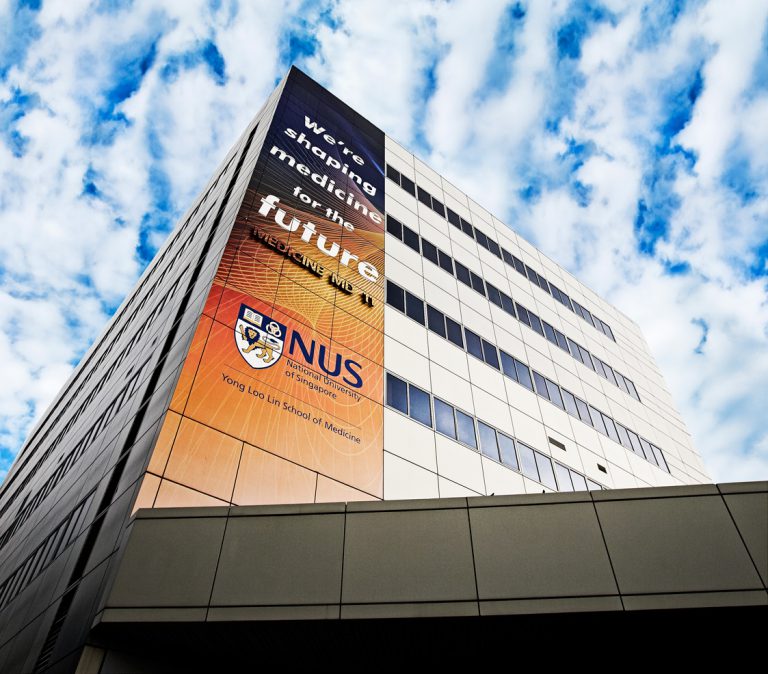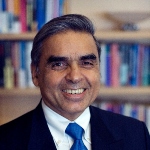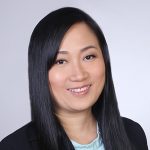About the NIC
The NUS Medicine International Council (NIC) is an exclusive network of international leaders, academics, and experts who will not only address the greatest challenges of our time — in healthcare, public health policy, population studies, and ground-breaking research in cancer, diabetes, and other chronic diseases — but will also identify promising opportunities and innovations across multi-disciplinary areas including information technology, engineering, computing, social sciences, and medicine.

Membership
NIC members are recognised for their service and scope of generosity to medical research and development and are actively engaged as the NUS Medical School’s ambassadors to the wider world. This distinguished group of men and women includes leaders in government, business, finance, pharmaceuticals, healthcare, law, and other fields from around the world.
The invitation-only group of 150 members attend an exclusive pair of annual conferences, one in Singapore and the other abroad, in addition to numerous other intimate activities organised by the Council. These gatherings provide opportunities for members to connect in a meaningful way to the University’s aspirations and the breadth of ideas and people that define NUS today.
NIC meetings are designed to entertain, engage, and present the latest innovations in medical science, healthcare, health policy, and other areas of interest. NIC members are invited to provide advice on strategic priorities, serve as ambassadors to raise the visibility of the School’s achievements, and set the pace of philanthropic support.
Member benefits include:
- Exclusive participation in two high-profile NIC meetings annually;
- Open introductions to leading minds in science, medicine, and academia, via regular meetings between researchers, doctors, educators and academia;
- Access to newsletters, research publications, education and scientific journals that are produced periodically by the NIC and NUS Medicine;
- The right to nominate two members annually to join the Council.
Membership to the NIC is a one-year term, renewed annually.
Leadership
 Professor Kishore Mahbubani has dedicated five decades of his life to public service: 33 years in the Singapore Administrative Service, 13 years as the Founding Dean of the Lee Kuan Yew School of Public Policy, National University of Singapore (NUS), and continuing now as a Distinguished Fellow at the Asia Research Institute, NUS, where he has launched the Asian Peace Programme and a massive open online course (MOOC) on US-China relations.
Professor Kishore Mahbubani has dedicated five decades of his life to public service: 33 years in the Singapore Administrative Service, 13 years as the Founding Dean of the Lee Kuan Yew School of Public Policy, National University of Singapore (NUS), and continuing now as a Distinguished Fellow at the Asia Research Institute, NUS, where he has launched the Asian Peace Programme and a massive open online course (MOOC) on US-China relations. In his 33 years as a Singapore diplomat, Kishore took on many challenging assignments, serving for example in Phnom Penh, Cambodia, in 1973-1974 when the city was shelled almost everyday. Shrapnel penetrated the walls of his house. He also served in Kuala Lumpur, Washington, DC, and two stints as Singapore’s Ambassador to the United Nations (1984-1989 and 1998-2004). He also held the apex position of Permanent Secretary of the Ministry of Foreign Affairs from 1994 to 1998. He was also conferred the Public Administration Medal (Gold) by the Singaporean Government in 1998.
Kishore had an equally illustrious career in academia. He was appointed the Founding Dean of the Lee Kuan Yew School of Public Policy in August 2004. Within five years, the LKY School was admitted to the Global Public Policy Network, a small elite club of Schools of Public Policy (with the other members coming from Columbia University, London School of Economics, and Sciences Po, Paris). Despite his heavy administrative duties, Kishore proved to be a prolific author. He has published eight books, including Can Asians Think? and Has China Won?.
Kishore has received global recognition for his intellectual contributions, having been listed several times in the list of top global thinkers by Foreign Policy and Prospect Magazines. The Financial Times listed him as one of the 50 individuals who would shape the debate on the future of capitalism. Perhaps the best summary of Kishore’s contributions was made in the citation for the United States Foreign Policy Association Medal he received in June 2004: “A gifted diplomat, a student of history and philosophy, a provocative writer, and an intuitive thinker.”
Kishore has held positions in several globally significant committees. He was the founding chairman of the nominating committee of the Lee Kuan Yew World City Prize (2009 to 2019). He also served on the Commission of Eminent Persons to revive the future of the International Atomic Energy Agency (IAEA) in 2007-2008, under the Chairmanship of the former President of Mexico, Ernesto Zedillo. He has participated in the annual meetings of the World Economic Forum (WEF) in Davos 20 times, serving also in several WEF committees. In April 2019, he was the second Singaporean to be elected as an honorary international member of the American Academy of Arts and Sciences, which has honoured distinguished thinkers, including several of America’s Founding Fathers, since 1780.
 Before joining the National University of Singapore’s Yong Loo Lin School of Medicine (NUS Medicine) as Senior Assistant Director of the NUS Medicine International Council (NIC), Hwee Koon was a Deputy Director in the Ageing Planning Office of the Singapore Ministry of Health (MOH), where she was involved in the Community Networks for Seniors (CNS) project. Prior to that, she was the Divisional Director of the Natural Resources Division in the International Enterprise Singapore, a statutory board under the Ministry of Trade and Industry in charge of trade promotion and internationalisation that has since merged into the current Enterprise Singapore (ESG); and Senior Manager under the North Asia Pacific Group. As a foreign service officer with the Ministry of Foreign Affairs, she had lived and worked in Taiwan as Assistant Trade Representative (Political) to Taipei from 2006-2009 and has been a student of Singapore’s relations with Greater China and ASEAN for more than a decade.
Before joining the National University of Singapore’s Yong Loo Lin School of Medicine (NUS Medicine) as Senior Assistant Director of the NUS Medicine International Council (NIC), Hwee Koon was a Deputy Director in the Ageing Planning Office of the Singapore Ministry of Health (MOH), where she was involved in the Community Networks for Seniors (CNS) project. Prior to that, she was the Divisional Director of the Natural Resources Division in the International Enterprise Singapore, a statutory board under the Ministry of Trade and Industry in charge of trade promotion and internationalisation that has since merged into the current Enterprise Singapore (ESG); and Senior Manager under the North Asia Pacific Group. As a foreign service officer with the Ministry of Foreign Affairs, she had lived and worked in Taiwan as Assistant Trade Representative (Political) to Taipei from 2006-2009 and has been a student of Singapore’s relations with Greater China and ASEAN for more than a decade. Hwee Koon is a journalist as well as gerontologist by training. She graduated from the Nanyang Technological University with a Degree of Bachelor in Communication Studies (Journalism & Publishing) with Honours and the Singapore University of Social Sciences with a Master of Gerontology (M GER).
About the NUS Yong Loo Lin School of Medicine
In working towards the NUS vision to be “a leading global university shaping the future”, the University has built a strong global reputation through its research and collaborations. Across 17 faculties and schools, and 29 research institutes and centres of excellence, NUS has engaged some of the world’s most brilliant minds to look into the future—from an Asian perspective.
Established in 1905, the NUS Yong Loo Lin School of Medicine is a leading medical educational and research institution in Asia. With 18 departments and two centres, the School covers a full spectrum of medical specialties. Clinical faculty also staff the National University Hospital (NUH), which is the primary training institution for the School. Together with NUH, NUS Medicine has played a profound role in shaping doctors and scientists, who will be future leaders in healthcare, academic medicine and public service in Singapore, Asia and beyond.
